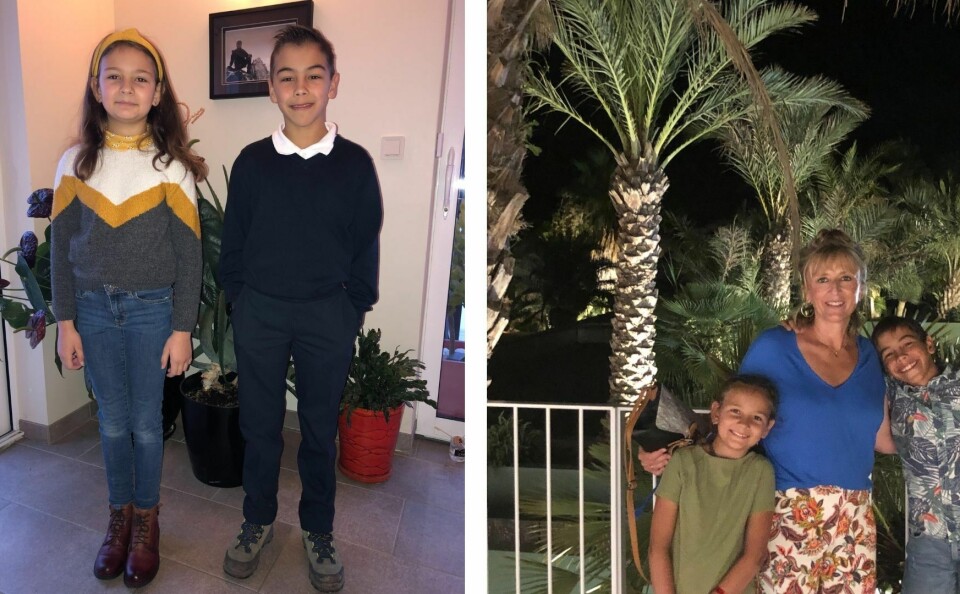-
I moved to France for the cake – and then learned to love British baking
Columnist Sarah Henshaw rediscovers the British baking tradition of comfort, jam and just having a go
-
Is it time to shorten France's school holidays?
Pascal Bressoux, professor of educational sciences at the University of Grenoble Alpes, explains why the school timetables need a rethink
-
Savoyards poke fun at Parisians over snow disruption
A few centimetres shut down capital but for those in Savoie ‘it’s time to clear the chalet steps so no one slips after an apero’
‘Our son is thriving after move from state to French private school’
The school is ‘hors contrat’ and has smaller class sizes and makes children feel more ‘at home,’ Connexion reader Lynne Watt said

A Connexion reader has told of her and her husband’s delight at discovering France’s hors contrat schools.
Hors contrat schools are educational establishments which are not under state control and so do not receive government funding. Often they have a religious link but they could also be ‘international schools’.
They can make certain departures from the French national curriculum and focus on a more specifically cultural, religious or educational programme, such as the Montessori method.
Their teachers are not required to have passed the same general exams as teachers in state or sous contrat schools, and so the staff may be experts in one specific subject or aspect of pedagogy.
Private schools which are hors contrat are not found as commonly as private schools sous contrat, whose staff are paid by the State and who must follow the national curriculum.
Children attending these sous contrat schools will therefore learn the same subjects as state school children but will likely be in smaller classes.
Their parents will normally pay a fee of a few hundred euros, although bursaries are available. The fees go towards the maintenance of the school buildings and additional lessons to the set state national curriculum, such as religious teaching.
The number of French private schools has increased steadily over the last decade, and now 15-20% of pupils go to a private establishment of some form.
France’s education system has a reputation for producing good results, although its rigorous nature has also been criticised as being inflexible and stressful for some pupils.
In his book, On achève bien les écoliers, Paris-based journalist Peter Gumbel argues that “France is the only country in the world that discourages children because of what they cannot do, rather than encouraging them to do what they can,” stating that 63% of school pupils complain of nervousness and 40% have trouble sleeping.
He calls for a more “nurturing, positive” attitude to learning, which is what our reader was also looking for in her search for a new school for her son.
Moving from state to private school
Lynne Watt’s 11-year-old son Joseph had started his secondary school life at a state collège school, but experienced problems with verbal and cyber bullying, as well as regular teacher absences.
Mrs Watt and her husband Richmond, who moved to France from Northern Ireland (with their pet cat) in 2006, and now live with Joseph and his younger sister Katy, 8, in St-Julien-de-Briola, a small Aude village overlooking the Pyrenees from where they run their renovations business.
They began looking for another school for Joseph after his first term at collège.
“We found a private school which is totally independent” or hors contrat, in Bram (Aude), Mrs Watt said.
The school was set up in 2015 by three families, beginning with around 30 children. “It now has over 120 children of more than 20 nationalities,” Mrs Watt said.
“Fees are significant (€2,500-€3,000 per year) but classes are smaller, with 12 students versus 29 previously.
“The curriculum is more or less the same with a similar number of hours per week dedicated to each subject : Maths, French, English, History, Geography, Sport, EMC (enseignement moral et civique), Art, Music and Sciences.
“Spanish is obligatory, unlike in the previous state-run school where students had to apply to do it in sixième (for 11 to 12-year-olds) and only 28 out of 120 students had the opportunity to study it.

Smaller class sizes make children feel ‘at home’
Mrs Watt added that: “The delivery and the quality of the teaching at my son's new school, in my opinion, is of a higher level.
“The English that my son was learning in sixième in the state-run school was being done in CM1 (for nine to 10-year-olds) of his new school.
The smaller class sizes also mean that: “Every child is given the same attention and help where needed. It does not promote segregation but creates an educational environment where students can thrive.
“At recreation, the maths teacher often plays football with the students, the younger children are helped by the older ones, the older students help with housekeeping duties, students are judged fairly, critique is constructive and help is offered when necessary. Every student is treated as an individual.
“The 'family' environment, which is so evident at this school, is conducive to a safe learning atmosphere where the child can grow and blossom in their education.
“Children feel ‘at home’, can thrive and not just survive and, as a consequence, the learning process becomes more pleasurable and stimulating. Our son now looks forward to going to school and learning has become a pleasure.
Mistakes are seen as ‘portals of discovery’
At the school “there is a large emphasis on respect for oneself, respect for teachers and fellow students.
“Mistakes are seen as the 'portals of discovery' and are explained fully to the student. In a French dictée (translation of spoken text), for example, a student with a low mark must study and identify his or her errors, and is then given the chance to rewrite it correctly to be re-marked.
“Long-winded, maybe, but the student learns from this process and doesn't feel demotivated by an initial low mark.
School uniform
Unlike most French schools, Joseph’s school has a school uniform policy, which Mr and Mrs Watt support, arguing that it “can reduce competitiveness among students, avoid feelings of embarrassment or inadequacy in students whose parents cannot afford the more expensive brands and even instil pride.
“While the initial outlay for a new uniform can be significant – especially for a family of four children like the one I came from – this [is often] outweighed by the long-term saving on the regular buying of clothes.
“My son was often teased about his clothing” at his previous school. “He often wore jeans and t-shirts or sweatshirts as opposed to the branded sports clothing worn by other students.
“He liked wearing what he wore but was made to feel different and inferior by other students because he didn't wear the same attire as them.
“My son is delighted to have a uniform at last! No confusion over what to put on in the morning, therefore saving us all time, and he has developed a respect for his clothes which he didn't have previously.
All in all, Mrs Watt believes that this school “has been a wonderful find for Joseph and we hope to send our daughter to the primary part of the same establishment in September.”
Do you have an experience of private or state schools in France that you would like to share? Please email news@connexionfrance.com with your story.
Related articles
‘Macron plans to end Capes teacher exam and its job-for-life status’
Olympic Games, bullies, vaccines: This week in France’s parliament
What help is available for victims of online bullying in France?
























